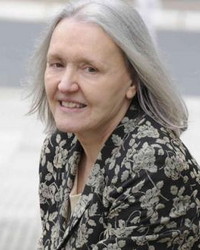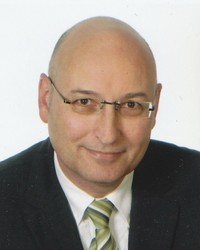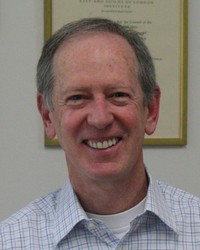
Keynotes
We are proud to announce three outstanding keynote speakers for ICSE 2012:
Saskia Sassen (Columbia University, USA)
Frank-Dieter Clesle (SAP, Germany)
Jeff Kramer (Imperial College, UK)
Keynote 1
Saskia Sassen (Columbia University, USA)
Digital Formations of the Powerful and the Powerless
Wednesday June 6, 2012 9:00 - 10:15
Abstract
This talk compares two kinds of socio-technical formations: electronic financial networks and local social activist movements that are globally networked. Both cut across the duality global/national and each has altered the economic and political landscapes for respectively financial elites and social activists. Using these two cases helps illuminate the very diverse ways in which the growth of electronic networks partially transforms existing politico-economic orderings. They are extreme cases, one marked by hypermobility and the other by physical immobility. But they show us that each is only partly so: financial electronic networks are subject to particular types of embeddedness and local activist organizations can benefit from novel electronic potentials for global operation. I show how financial electronic networks and electronic activism reveal two parallel developments associated with particular technical properties of the new ICTs, but also reveal a third, radically divergent outcome, one I interpret as signaling the weight of the specific social logics of users in each case.
About the Speaker
Saskia Sassen is the Robert S. Lynd Professor of Sociology and Co-Chair, The Committee on Global Thought, Columbia University, USA.
Her recent books are Territory, Authority, Rights: From Medieval to Global Assemblages ( Princeton University Press 2008), A Sociology of Globalization (W.W.Norton 2007), and the 4th fully updated edition of Cities in a World Economy (Sage 2011). The Global City came out in a new fully updated edition in 2001. She is currently working on When Territory Exits Existing Frameworks (Under contract with Harvard University Press). Her books are translated into twenty-one languages. For UNESCO she organized a five-year project on sustainable human settlement with a network of researchers and activists in over 30 countries. She contributes regularly to www.OpenDemocracy.net and www.HuffingtonPost.com.
She has received several honors and awards, most recently a doctor honoris causa from each Delft University (Netherlands), DePaul University (USA), and Université de Poitiers (France). She serves on several editorial boards and is an advisor to several international bodies. She is a Member of the Council on Foreign Relations, a member of the National Academy of Sciences Panel on Cities, and chaired the Information Technology and International Cooperation Committee of the Social Science Research Council (USA).
Keynote 2
Frank-Dieter Clesle (SAP, Germany)
Supporting Sustainability with Software -- An Industrial Perspective
Thursday June 7, 2012 9:00 - 10:15
Abstract
Supporting sustainability with software is often summed up in the expression ‘Green IT’ and directly relates to the reduction of CO2 emissions and energy used by IT. The amount of CO2 used in the IT industry covers 2% of the overall CO2 emissions. “Green by IT” describes the influence of appropriate software to the remaining 98% of the industry. We estimate that the effect of our sustainability related software on our customers’ CO2 footprint could be 10.000 times higher than our own.
The so called triple bottom line defines sustainability as covering economic, ecological, and social aspects and the dependencies between. Based on this definition of sustainability, software could not only focus on green house gas reduction. Other topics like: consumers’ protection, sustainable supply, reduction of emission (air, water, waste), recycling, human recourse management and intelligent energy usage must be as well focus areas supported by software. At last software industry should not only focus on delivering tools for life cycle assessment (LCA), we should use it and provide a LCA for our software self.
The industrial question is how to increase short and long term profitability by holistically managing economic, social and environmental risks and opportunities supported by software.
About the Speaker
Frank-Dieter Clesle is Vice President On-Demand Content as a Service Infrastructure, a part of SAP's sustainability solutions located at SAP Sustainability Lab in Markdorf, Germany. Before joining SAP, he was Executive Vice President Corporate Portfolio Management at TechniData, the leading provider of Environment Health and Safety solutions, until TechniData was acquired by SAP in 2010.
He is a co-author of the book Umweltkonforme Produktgestaltung (environmentally compliant product design) published 2008 by Publicis (in German) and contributed to the book EcoDesign: Von der Theorie in die Praxis (EcoDesign: from theory to practice) published 2008 by Springer (in German).
Frank-Dieter Clesle is a member of various sustainability-related working groups in European industrial associations.
Keynote 3
Jeff Kramer (Imperial College London, UK)
Whither Software Architecture?
Friday, June 8, 2012 14:00 - 15:15
Abstract
Since its early beginnings in the 1980s, much has been achieved in the research field of software architecture. Among other aspects, this research has produced foundational work on the specification, analysis and component configuration of software architectures, including the development of associated software tools. However, adoption of the research by industry has been largely methodological rather than based on precise specifications in architecture description languages (ADLs) or rigorously underpinned by formal models of behaviour and non-functional attributes. Why is this? Why were the actual formalisms and tools not more widely adopted? Can we draw any lessons from this? In this talk, I hope to explore this further, drawing on my personal experience as a researcher in distributed software architectures.
I particularly hope to tickle the fancy of the younger members of our community, indicating the excitement of research, the benefits of belonging to a vibrant research community such as ours, and the benefits of being an active contributor. For the more mature researchers, there will be some nostalgic memories combined with some inevitable stepping on toes. For both young and old, there will be some thoughts for research opportunities as the need for self-managing adaptive software systems becomes more urgent.
About the Speaker
Jeff Kramer is the Senior Dean at Imperial College London. He was Head of the Department of Computing from 1999 to 2004 and Dean of the Faculty of Engineering from 2006 to 2009.
His research work is primarily concerned with software engineering, focusing on software architecture, behaviour analysis, the use of models in requirements elaboration and architectural approaches to adaptive software systems. He was a principal investigator of research projects that developed the CONIC and DARWIN architectural environments for distributed programming and of associated research into software architectures and their analysis.
Jeff was Program Co-chair of ICSE '99, Chair of the ICSE Steering Committee from 2000 to 2002, and General Co-chair of ICSE 2010 in Cape Town. He was Editor in Chief of IEEE TSE from 2006 to 2009, received the Most Influential Paper Award at ICSE 2003, and was awarded the 2005 ACM SIGSOFT Outstanding Research Award and the 2011 ACM SIGSOFT Distinguished Service Award. He is co-author of books on Concurrency and on Distributed Systems and Computer Networks, and the author of over 200 journal and conference publications. Jeff is a Fellow of the Royal Academy of Engineering, a Chartered Engineer, Fellow of the IET, Fellow of the ACM, Fellow of the BCS and Fellow of the City and Guilds of London Institute.




